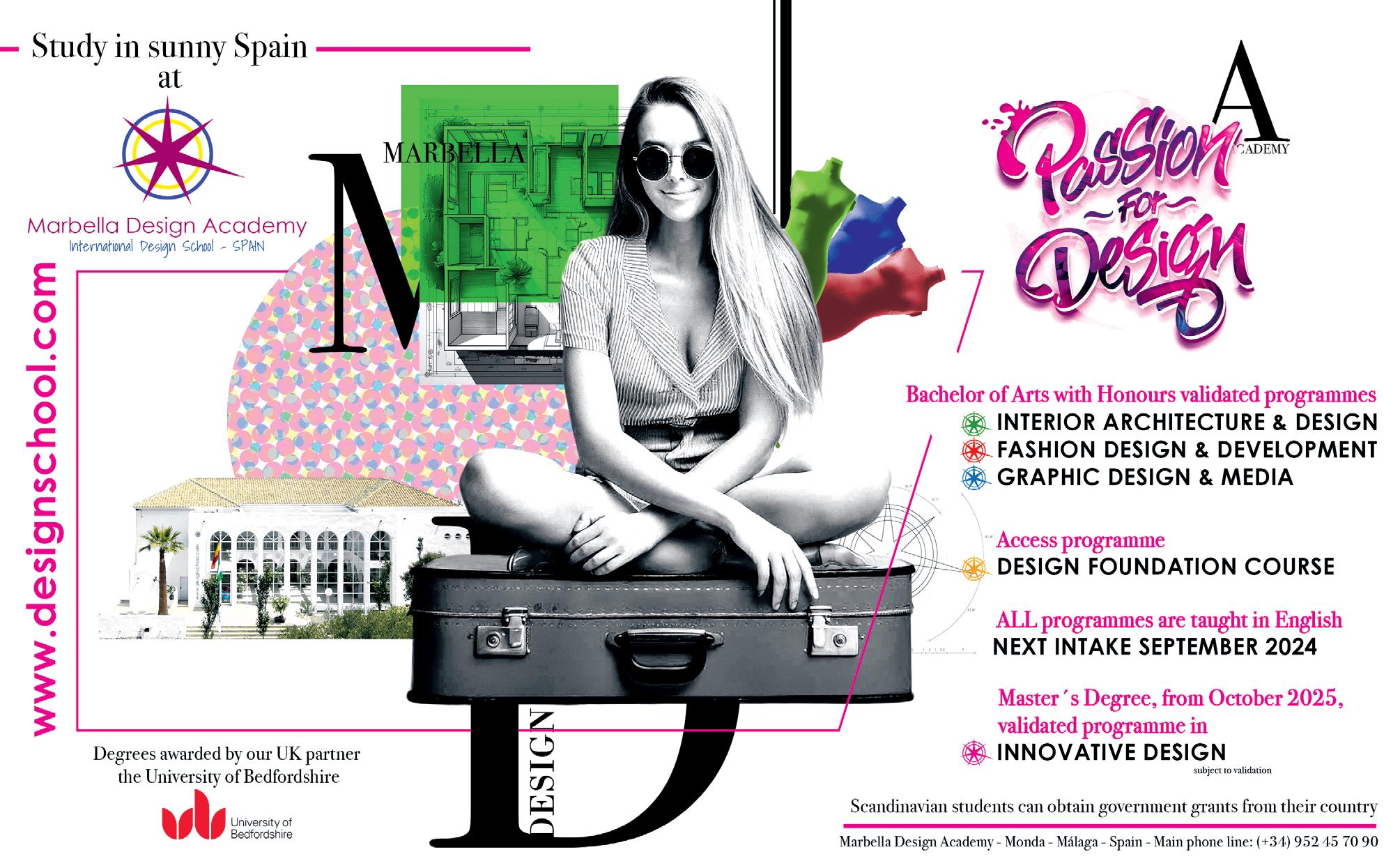






THE attraction of the Costa del Sol for bringing up children is growing in popularity. A safe, friendly and family-orientated environment, Andalucia has the third highest birthrate of all the autonomous regions of Spain meaning that it has developed plenty of choice for families with children in terms of services, entertainment and education.
The allure of the laid-back lifestyle with few traffic problems, stunning scenery and some of the best beaches in the world, make the Costa del Sol a top choice when considering relocation. Mild winters, divine springs and autumns along with tolerably hot summers, the climate here welcomes and encourages an outdoor lifestyle whether for socialising, sport and fitness or educating your child in warm and gentle yet vibrant social surroundings. One notably frequent comment from those who have experienced living in other areas
of Spain, for example, is how relatively little people in the Malaga Province swear or curse when compared to other provinces.
International education along the Costa del Sol is full of excellent private and state options, all schools focused on a bilingual education in which cultural diversity is not part of an enforced educational programme, but part of a natural landscape with scores of different nationalities having decided to bring their children up on this coast. The most populous foreign nationalities throughout the Costa del Sol are made up of Europeans, Americans and Africans.
Sports facilities are plentiful in the area and kids are actively encouraged to get involved. As well as the most obvious, such as football and basketball, paddle tennis, golf, sailing and handball are all represented in both schools and sports fa-
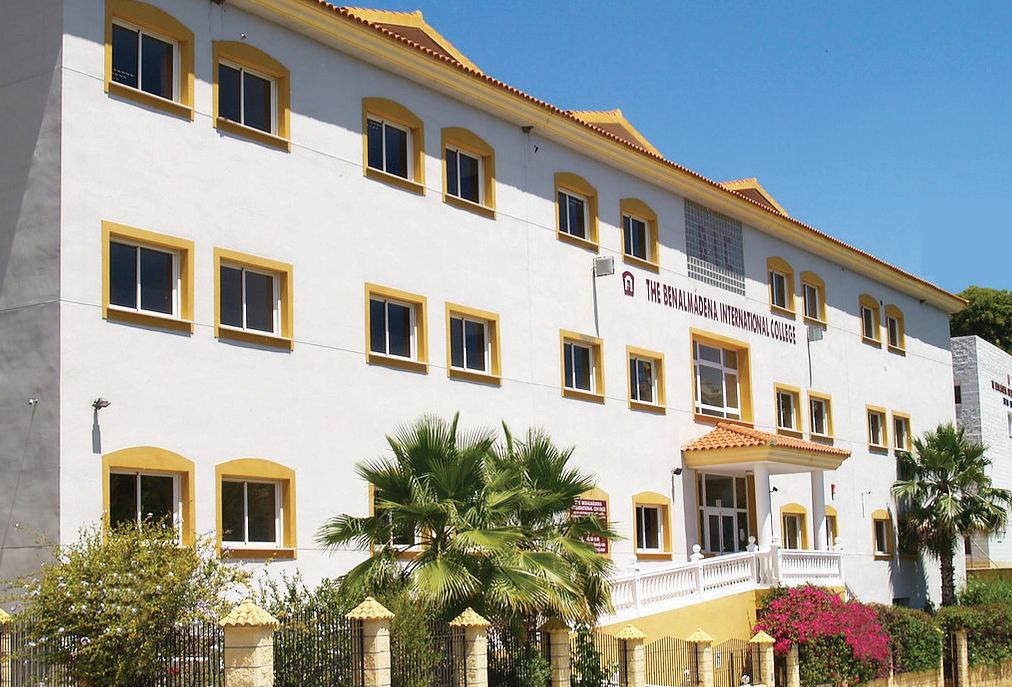

cilities. Local municipal councils invest heavily in sports centres, keeping the cost of signing up for after-school activities low cost and high quality. With more than 150 kilometres of coastline along the Malaga coast, the Costa del Sol is bathed in its biggest attraction, the Mediterranean Sea. The pleasant climate and warm sea invites locals to take up water and beach activities, whether fishing, rowing, diving or paddle boarding, or simply having a relaxing family barbecue on the beach at one of many public ‘moragadores’ - a sand-filled boat on the beach which can be used for barbecues.
The benefits to health brought about by more hours of sunlight and the Mediterranean diet, coupled with the friendly lifestyle are too numerous to mention all here, but happy parents tend to make happy children.
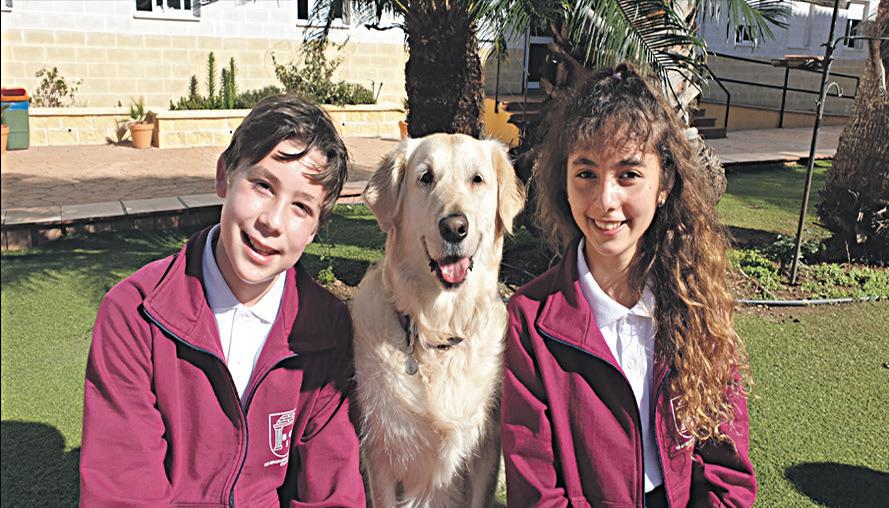








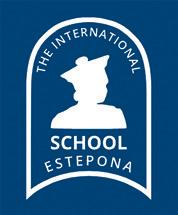
THE International School Estepona is based in the heart of El Paraiso and is fully licensed with the Junta de Andalucia, alongside a member of NABSS. The school provides a safe, inspiring, personalised and fun learning environment for international students to learn. This is reinforced by ensuring that class sizes remain small and tailored to each child’s needs.
The International School Estepona was established in 2004 and is the educational home to just over 100 children from all over the world aged from two to 12 years. The school was purpose built and is different to what you see from other schools in the area. During the school’s most recent inspection by the British Council, ISE achieved the full four years’ authorisation. The inspectors also commented, ‘how unusual it was to see a small school with such large gardens and sports facilities’.
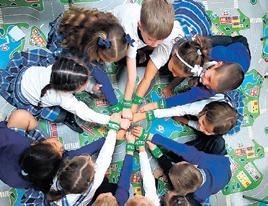
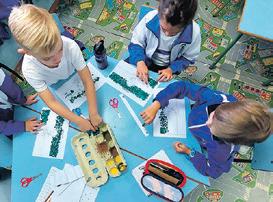
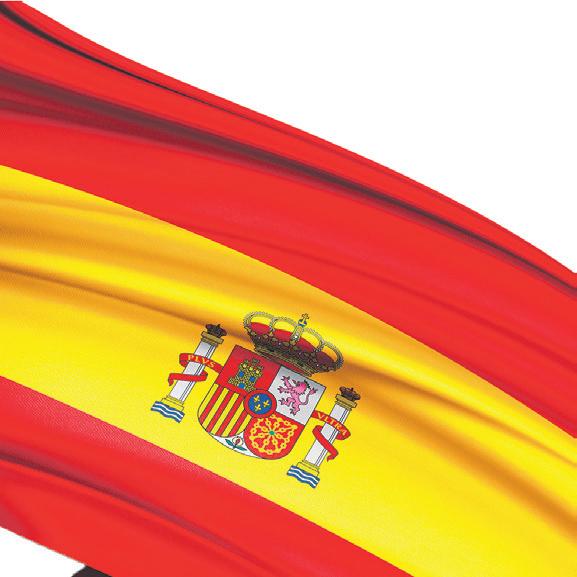
The school is British and the primary school Maths and English curriculum, is based on the English National Curriculum and is designed to provide the highest academic quality of education. Based on national statistics, most children educated in a British style are a year or more ahead. The National Curriculum is renowned worldwide and allows a child to move seamlessly between another British School whether here in Spain or around the world. All other subjects are taught through themed units of the International Primary Curriculum (IPC).
In the Early Years Foundation Stage (EYFS), we seek to create a safe, caring and happy environment, where a child believes that they are capable of anything. Our EYFS curriculum is designed to allow each child to discover interests and talents as well as equip them to become life-long learners. The EYFS curriculum is organised into seven areas of learning and development; Personal, Social and Emotional
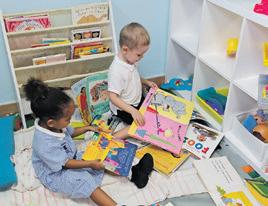


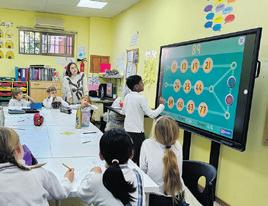

Development, Communication and Language, Mathematical Development, Understanding the World, Physical Development, Expressive Arts and Design and Literacy Development.
Due to the increasing demand, generated from the needs of new families arriving in the local community, the International School Estepona has expanded their infrastructure, with a fabulous brand-new area for the Early Years Foundation Stage 1; children aged two to three years old.
ISE is a truly international school, where parents trust and students flourish.
Calle Azahar, 12 Urb. El Paraíso 29688 Estepona Visit marbellaschool.com
For more information contact daniela@marbellaschool.com or call +34 951 742 736
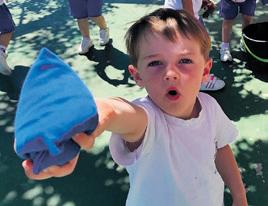
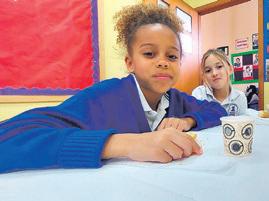
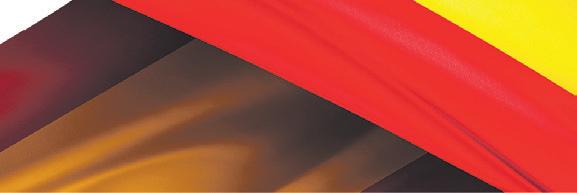
IN Spain, schooling is state-funded and compulsory for children aged three to 16. However, parents or guardians are responsible for covering the costs of books, materials, and sometimes uniforms.
The Spanish education system is divided into three main types of schools: public (colegios públicos), private (colegios privados), and semi-private (colegios concertados), which receive partial funding from both the state and private sources.

Preschool education, known as educación infantil, is divided into two cycles.


Bachillerato is a non-compulsory stage for students aged 16 to 18, akin to ‘A’ Levels in the UK.




The first cycle, for children aged 0-three, is optional and usually requires payment, though financial aid may be available for eligible families.

Though optional, many students pursue it. Bachillerato allows students to specialise in areas such as art, science and technology, or humanities and social sciences.




The second cycle, for ages three to five, is mandatory and free at public preschools.

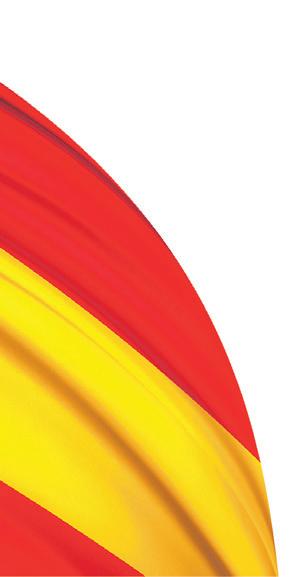
Primary education, or colegio, spans six years, covering ages six to 12.
The curriculum focuses on a broad range of subjects including culture, oral expression, reading, writing, and mathematics, while fostering cognitive and social development.
After primary school, students enter Compulsory Secondary Education (Educación Secundaria Obligatoria or ESO), which serves students aged 12 to 16.
This stage blends elements of middle and senior school, and its completion is mandatory. However, students who turn 16 before finishing can choose to leave school.
After completing Bachillerato, students have several options, including taking a university entrance exam or pursuing higher vocational training, among others

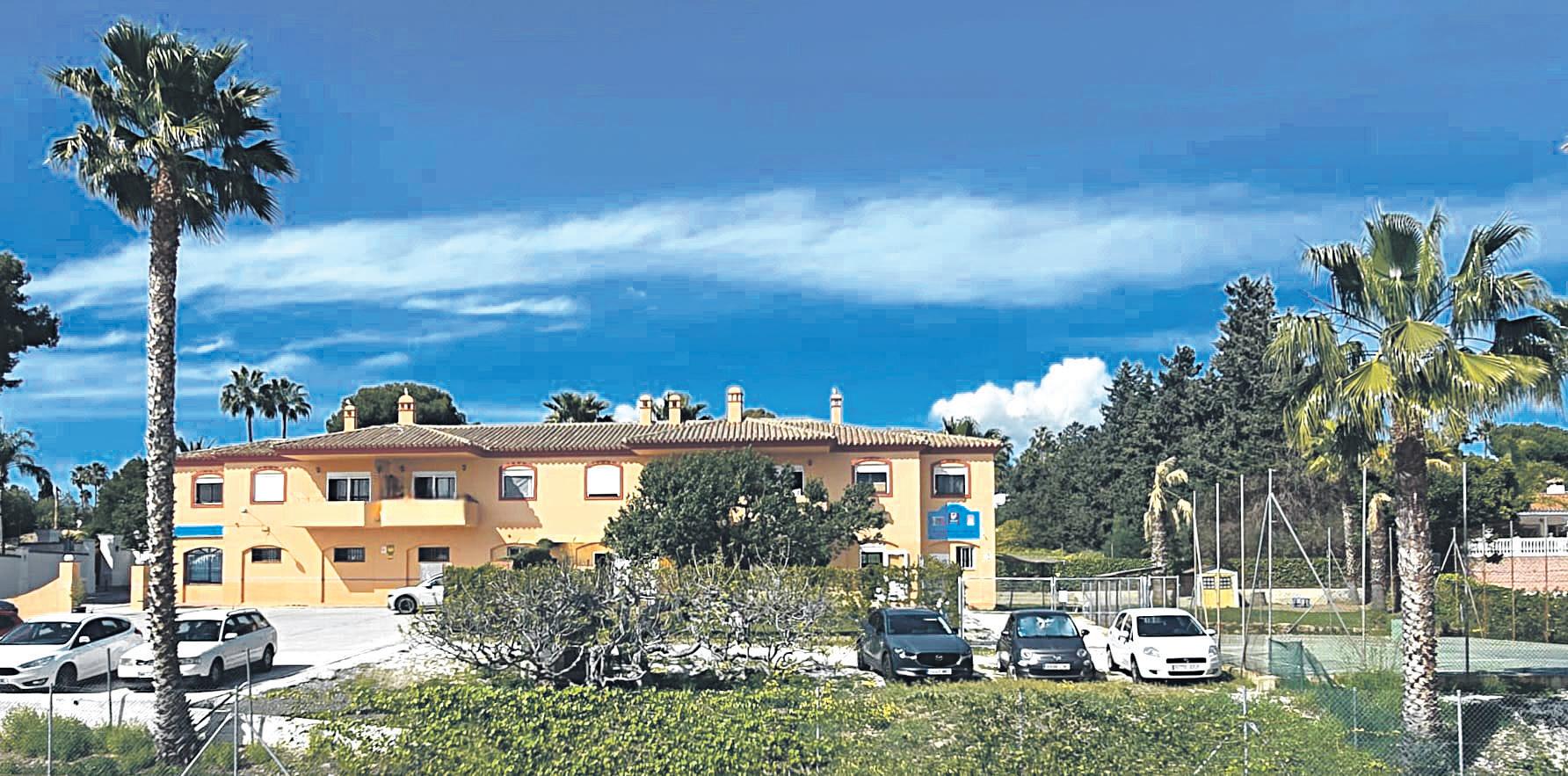
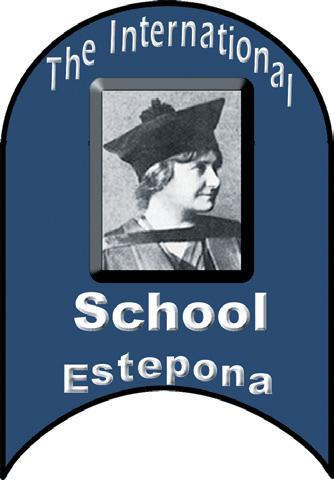

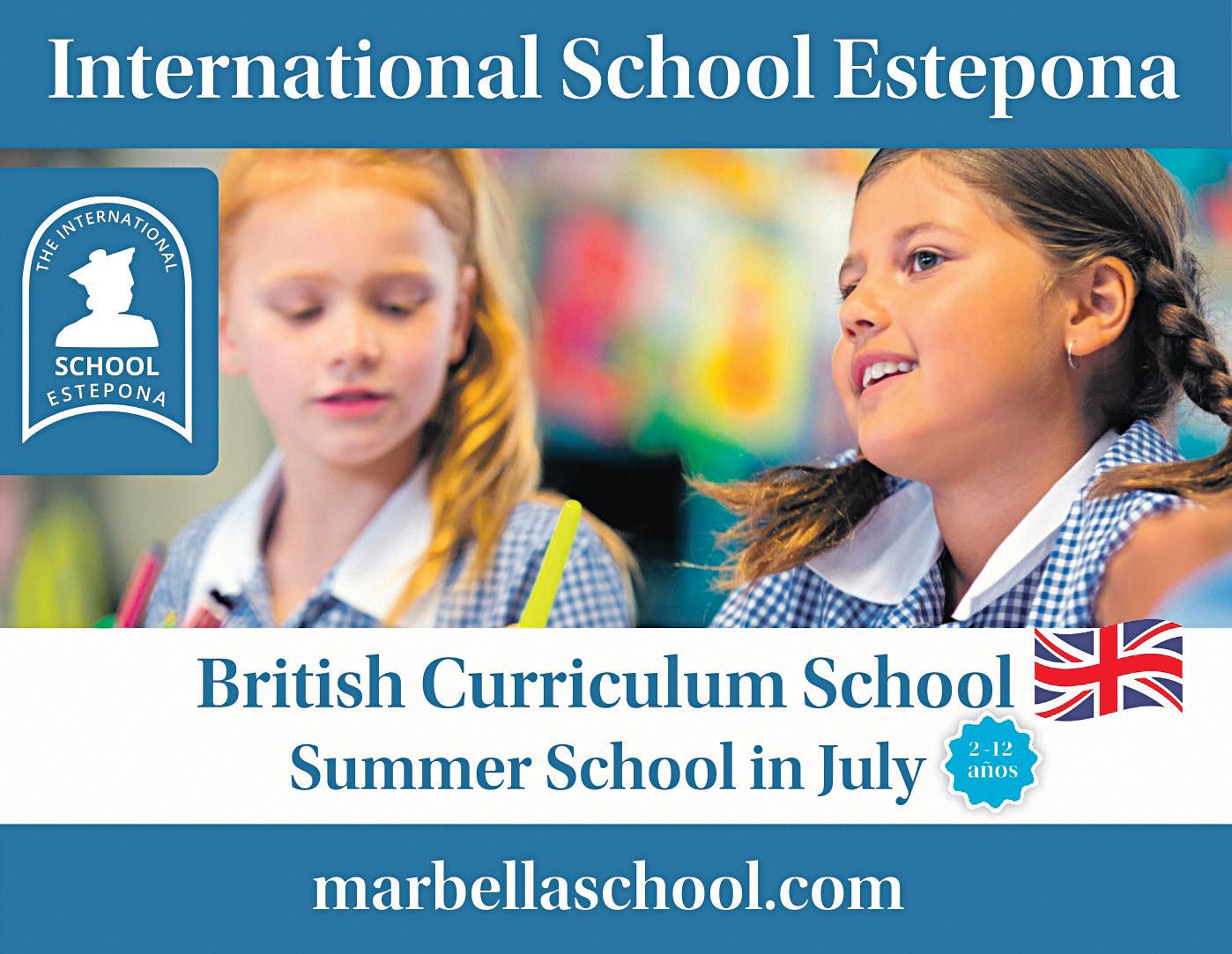
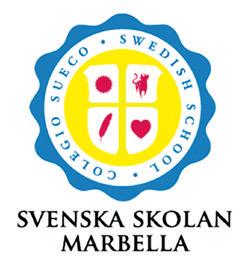
WELCOME to the ‘School within a School’ and our new International Curriculum! We are thrilled to announce the introduction of an international curriculum at Svenska Skolan Marbella, starting with Year 8 this academic year. By 2025/26 school year, we will extend the curriculum to Years 7 and 9, marking an exciting expansion of our educational offerings. This curriculum aims to provide students with a globally-minded, culturally enriched, and academically rigorous education.
At Svenska Skolan Marbella, our mission is to nurture lifelong learners who are globally minded and culturally aware, ensuring they are prepared to thrive in an ever-changing world. We offer a safe environment where
students are encouraged to reach their full potential and become responsible, compassionate members of society.
Our dedicated team of educators brings a wealth of international experience and expertise to the classroom. Our curriculum follows the Cambridge Pathway and includes subjects such as English, Mathematics, Science (Biology, Chemistry, Physics), Global Perspectives, Modern Foreign Languages (Spanish), Art and Design, Computing, Music, Physical Education and Wellbeing. This broad and balanced curriculum fosters critical and independent thinking, creativity, and a passion for learning.
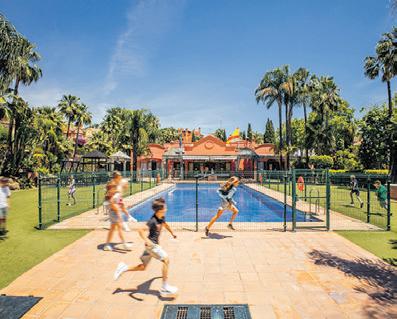
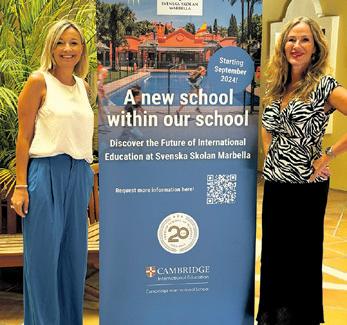

Our meaningful homework policy prioritises student well-being by conducting essential learning during school hours and encouraging self-directed reading and exploration outside of school.
We offer a range of extracurricular activities to complement our academic programme, including sports, arts, and clubs that cater to various interests and talents. Our wonderful facilities for outdoor learning include a football pitch, multi activity area, padel courts, outdoor swimming pool, and indoor gymnasium. Swedish students will also have the opportunity to learn Swedish through the Sofia Distans programme, ensuring they stay
connected to their cultural heritage and are given the possibility to carry on with their future studies in Sweden if they so wish.
With small class sizes, we believe in the value of experiential learning. Students will also have the opportunity to participate in educational day trips and residential trips that enhance their learning experiences beyond the classroom.
We warmly welcome you to come and discover our facilities by contacting our admissions department. We are excited to embark on this journey and look forward to a successful academic year at Svenska Skolan Marbella!

ALONG the Costa del Sol, students attending international schools have the choice of either electing the International Baccalaureate or A-Levels, both of which are two year, post-16 qualifications, acting as pathways to university.
The International Baccalaureate (IB) allows students to study six subjects, each one being worth up to seven points (equivalent to an A* at A level), with the maximum available points being 45. Students additionally obtain points in three
Photo: Shutterstock
obligatory subjects known as EE (extended essay), CAS (creativity, activity, service) and TOK (theory of knowledge).
Advanced Levels (A-Levels) are graded from A*-U, where students take either three or four subjects. Schools along the Costa del Sol generally offer the international modular structure, where students’ official exams are equally split across both academic years.
Selecting either the IB or A-Levels is a tough decision for many. The IB allows one to take a wider range of subjects yet study them in less detail, ideal for those who are unsure on their future career. However, the workload is often considered to be slightly more than those taking A-Levels. IB exams also allow for easier entry into European universities as they are more universally recognised.
However, A-levels allow you to go more in-
depth with your subjects, perhaps better preparing you for university as you gain more subjectspecific knowledge. It must be noted that at times, students face difficulties trying to enter some European universities with A-Levels and may be required to take additional exams, although many do accept A-Levels.
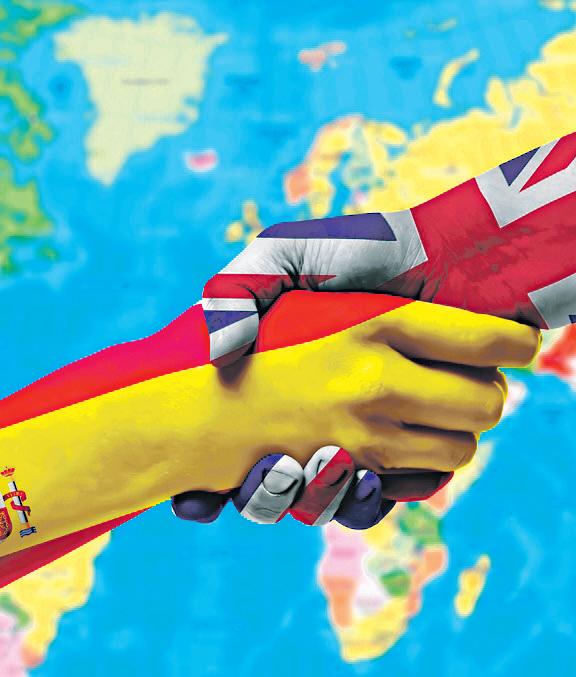
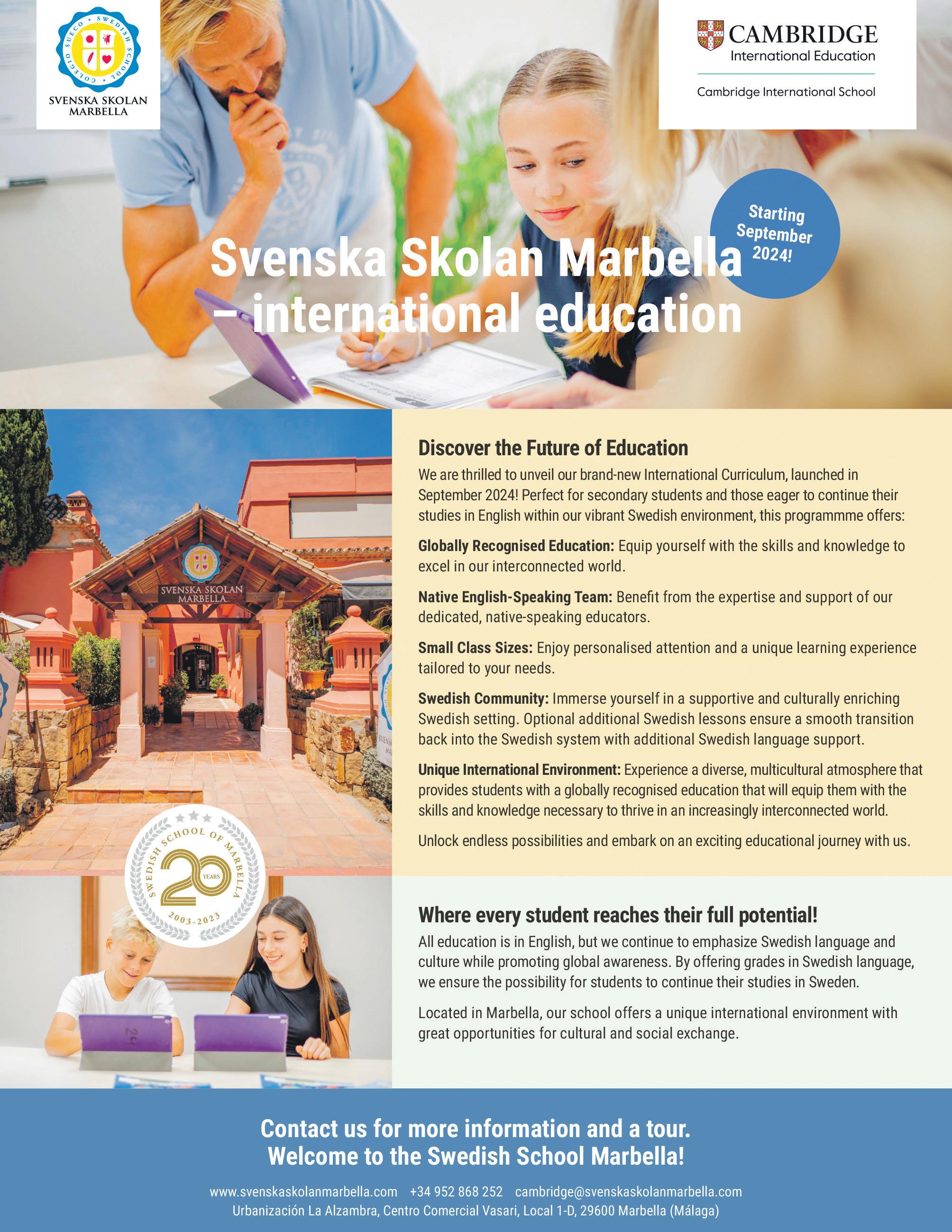
WE return for another academic year at Laude San Pedro International College after a long, hot summer, full of hard work and effort to ensure everything is ready and prepared for the start of the school year.
During the summer, we have renovated many areas of the school to allow us to continue offering quality education to all our families. We have installed new outdoor play areas so that the younger students can enjoy the sunshine and fresh air during their playtime, as well as refurbishing various classrooms, such as the drama and art room so we can offer quality creative subjects to students.
Continuous improvement is one of the hallmarks of Laude San Pedro, and for this reason, we never stop refreshing and enhancing our facilities, increasing the number of staff on our team, and providing the best facilities and learning environment to continue being the school of choice on the Costa del Sol.
In addition to classroom teaching, we have our International Learning Opportunity programme (ILOS) as part of being an International School Partnership school. This allows us the opportunity to interact with schools from around the world, engaging in various extra curricular activities such
as chess, football, Model United Nations, and countless other opportunities that allows a more holistic education for the school.
At Laude San Pedro, our vision is that every child will exceed their own expectations in a safe, happy and inclusive environment where everyone is supported and encouraged to excel.
• Your child will thrive in a happy learning environment. We are committed to working alongside families to create an environment in which all children are excited to come to school and learn in new and fascinating ways.
• Your child will be safe. We protect all children in school and provide the education, support, and services which will enable them to learn how to grow into aspirational and resilient individuals, with the necessary skills to take care of themselves in the future.
• Your child will have access to a world class learning experience. We will continuously evaluate and improve our learning programme to ensure that every child benefits from excellent academic and enriched curriculums.
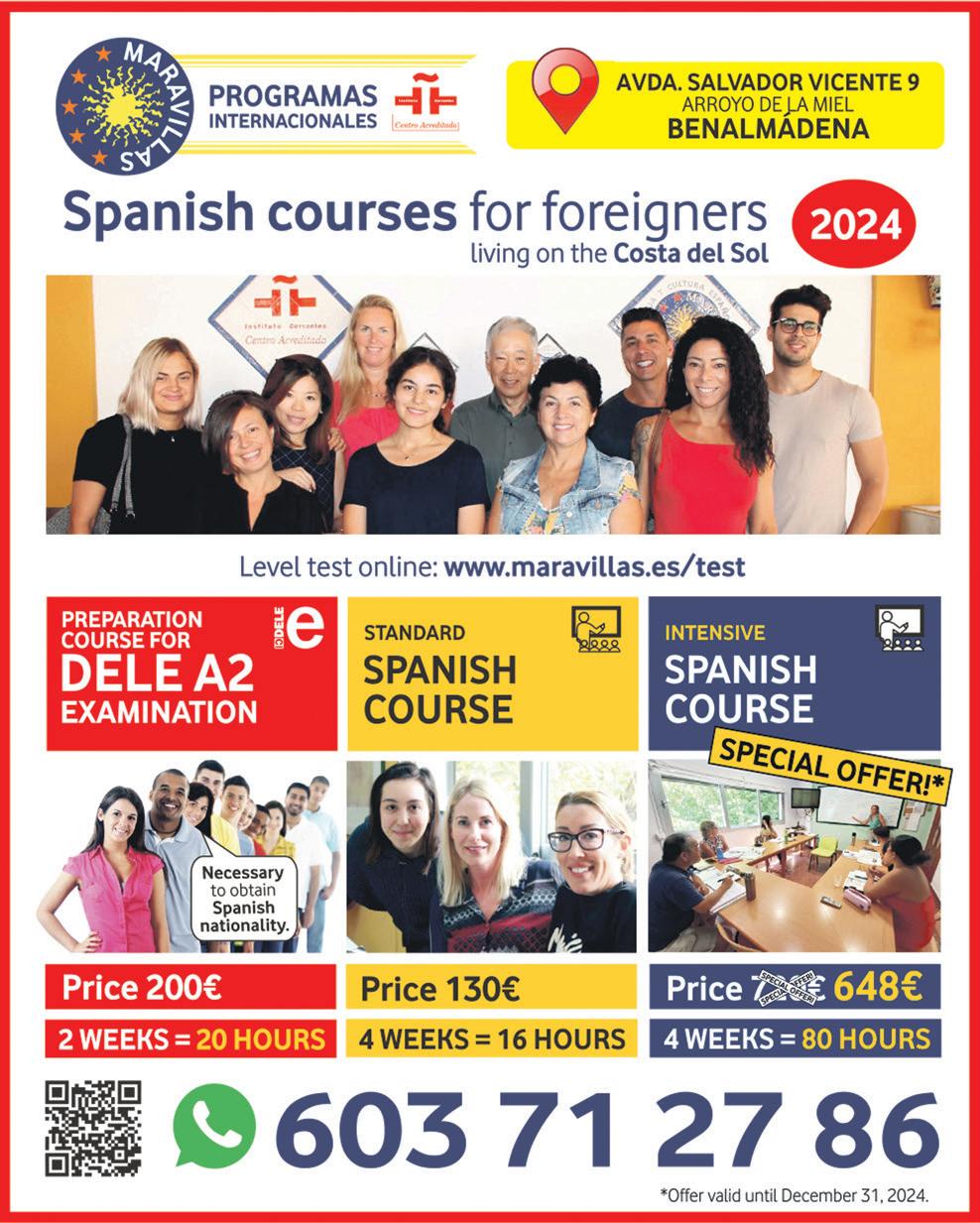

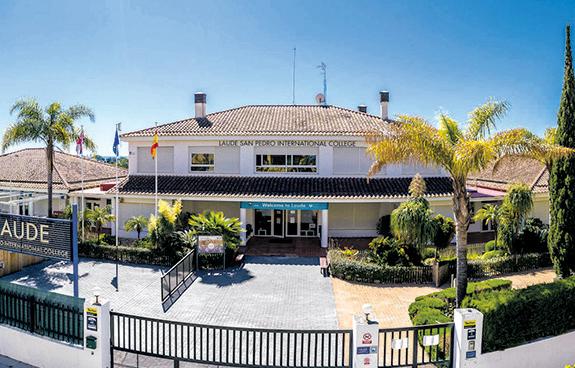
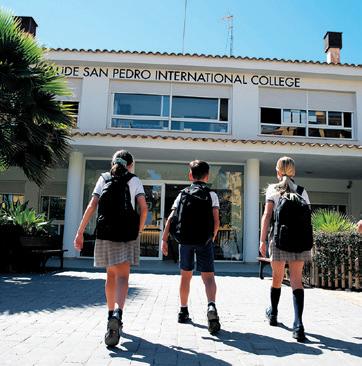
Avda. La Coruña, 2, 29670 San Pedro Alcántara (Marbella) Tel: (+34) 952 799 900 Web: laudesanpedro.com

Catherine McGeer
MOVING to a new country can be both exciting and overwhelming, especially when it involves finding the perfect school for your children. For international families, this transition often means embracing a new language, such as Spanish, and navigating cultural differences along the way. Here are some invaluable tips to ease this journey:
Research plays a pivotal role in finding the best fit for your child. Look for schools that offer bilingual programmes or robust support for language learners. Dive into their curriculum offerings, extracurricular activities, and how they integrate international students into their community. Visiting prospective schools is highly recommended - it provides firsthand insight into the environment and allows you to engage with teachers and administrators about their approach to aiding students in adjusting and learning Spanish.
Seeking recommendations from other families or local communities can provide
additional perspective and first-hand experiences, helping you make a more informed decision.
Encouraging language practice outside of school is essential. Whether through formal language classes, cultural outings, or everyday conversations with local friends, these experiences enrich your child’s language skills and cultural understanding. Celebrate every milestone in their language learning journey, reinforcing their progress and boosting their confidence along the way.
Social integration is equally important. Encourage friendships with both local and expat children, promoting a sense of belonging and providing opportunities for your child to practise Spanish in a natural setting.
Transitioning to a new school abroad requires patience and adaptability. By selecting the right educational environment and actively supporting your child’s language acquisition, you can transform this experience into a rewarding adventure for your entire family.
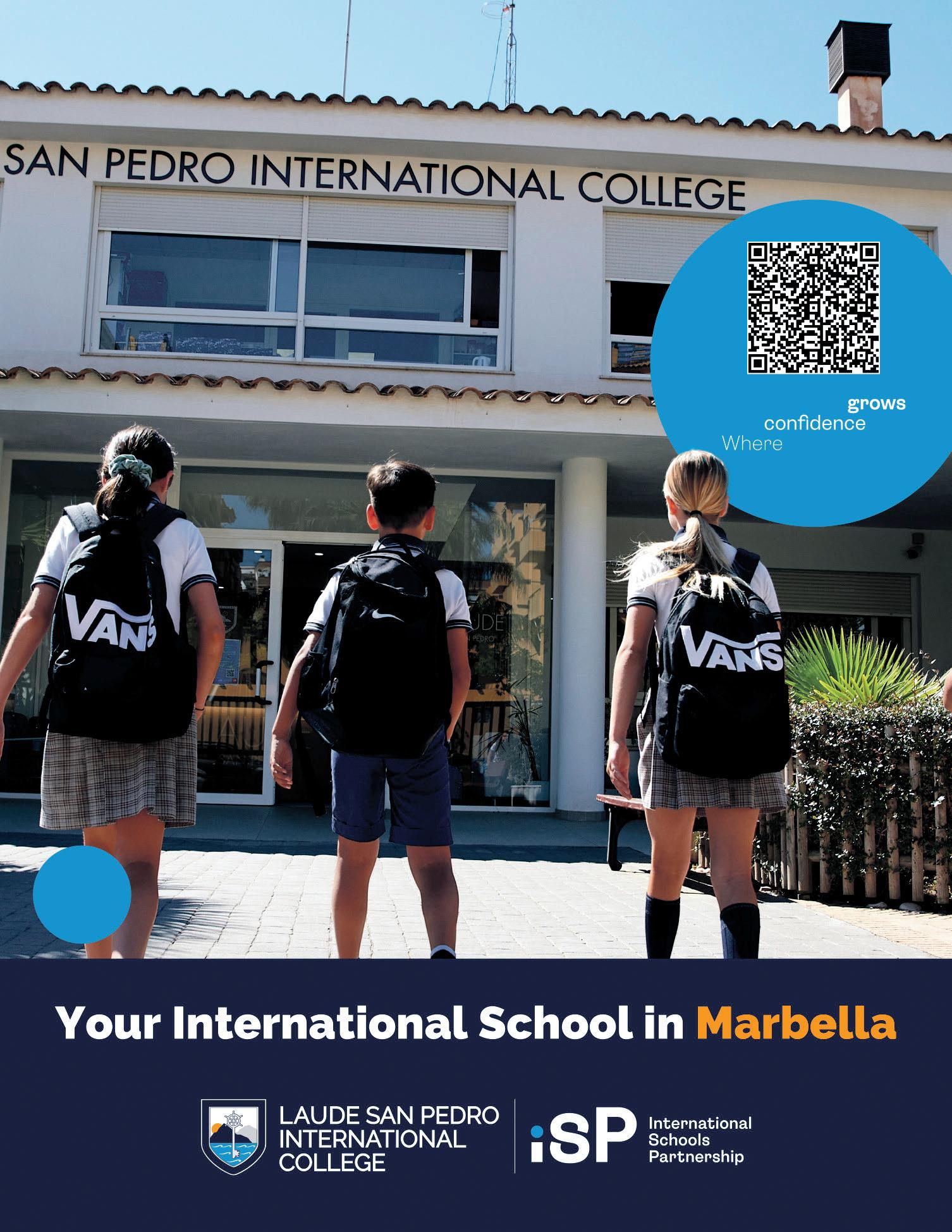
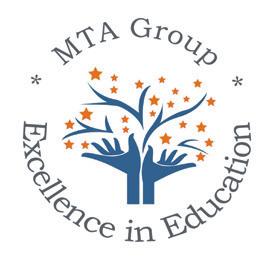
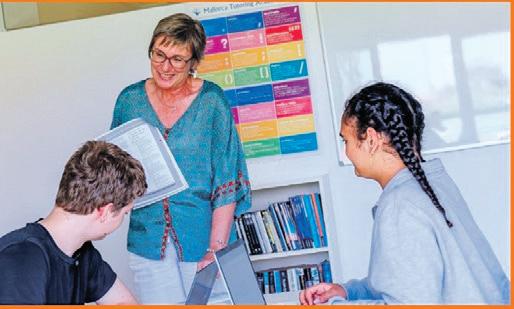

Our mission is to provide affordable, individually tailored, high-quality education to students that meets with the pace which suits their personal needs, life and learning style, making their learning journey enjoyable and effective.
THE team at MTA Tutoring Group have been working to provide excellence in education and customer service for the past 15 years. Our journey started in September 2009 when we took the initial steps to open our education centre, near Palma de Mallorca. Since then, many things have changed; our business has grown into what it is today, offering excellent supplementary and blended learning in Mallorca and on the Costa del Sol.
Both academies offer bright, learning centric environments to encourage self discipline and give students the ability to have close contact with their tutors, whilst maintaining individually tailored programmes to meet each of the students’ learning needs.
As well as offering the traditional tutor student relationship we have developed an excellent partnership with Wolsey Hall Oxford, a highly regarded online learning system.
This blended learning approach to education
combines online educational materials with supporting tailormade classroom methods. It requires the physical presence of both teacher and student, with elements of independent learning and student control over time, place or pace. The tutor acts as mentor, subject matter expert, gatekeeper and timekeeper.
I believe this model of learning is far more effective than traditional online classes which only take the weaknesses of the classroom and transfer it to an online environment.
We have seen many students thrive in the flexibility of this environment; from those who are elite sports people, those for whom the traditional classroom environment cannot fit and for those where a linear learning journey is not possible due to a number of issues.
In addition, our supplementary educational programmes are wide ranging and include English, English 2nd Language, mathematics and sciences at all levels up to A level. We also provide tuition for
are proud to be opening their 2nd studio in Mijas Costa due to popular demand!
INCLUDE: Disneyland, TU SI QUE VALES, Got Talent, Showdance champions, student awards, choreography awards, highest IDTA exam mark in Spain
WE WORK

students who need to improve their skills in Spanish, humanities, business and economics again at all levels.
Whilst our primary focus here on the Costa del Sol has historically been to offer an individually tailored AS and A level programmes in conjunction with our online partner Wolsey Hall, for the forthcoming academic year, we are delighted to announce the extension of our evening offering for maths, humanities, business, economics and English 2nd Language studies.
We currently tutor over 300 students a week over both academies, so whether you are based on Mallorca or in the Costa del Sol we will be at your disposal and can offer an unbiased approach to making your child’s learning journey the most effective it can be.
Local 4, Centro Comercial Torrenueva Av. Estrella del Mar 2, Nueva Torrequebrada 29630 Benalmadena email: Julie@tutoringacademy.eu or call Julie on +34 951 518 821 tutoringacademy.eu
IT’S not an exaggeration to suggest that the majority of readers of Euro Weekly News are not Spanish but are indeed settlers in Spain from across the world.
This means they read this newspaper because they have a good understanding of the English language and in many cases they will be relatively new arrivals with children who need to be educated.
There is an incredible selection of schools across the Costa del Sol and the Spanish public education system recognises that wherever possible, running a bilingual school system is beneficial not only to the incomers but also helps local children to learn a second language in some depth.
Private schools offer a wide range of options which in some cases are country specific, whilst others offer a choice of a Spanish or English curriculum which may be ideal for those who are

posted to Spain for a few years.
It has to be remembered however that in so many cases, the decision to move from your country of origin whilst being made with the best of intentions may cause difficulties for children of almost any age.
No matter how well prepared they may appear, the theory and the practice can be quite different things and it is important that parents keep this in mind.
One way of softening the blow is for the entire family to work together to learn Spanish, the children will be encouraged by the
fact that their parents are clearly committed whilst the parents could even learn a thing or two from their children.
Assimilation and becoming part of the local community can be easier and more successful if you speak Spanish and your Spanish neighbours and potential friends will be pleased to see that you are trying.
There are plenty of excellent Spanish tutors both private and council supported and if you are watching streamed films, have them turned to Spanish but with subtitles in your own language.
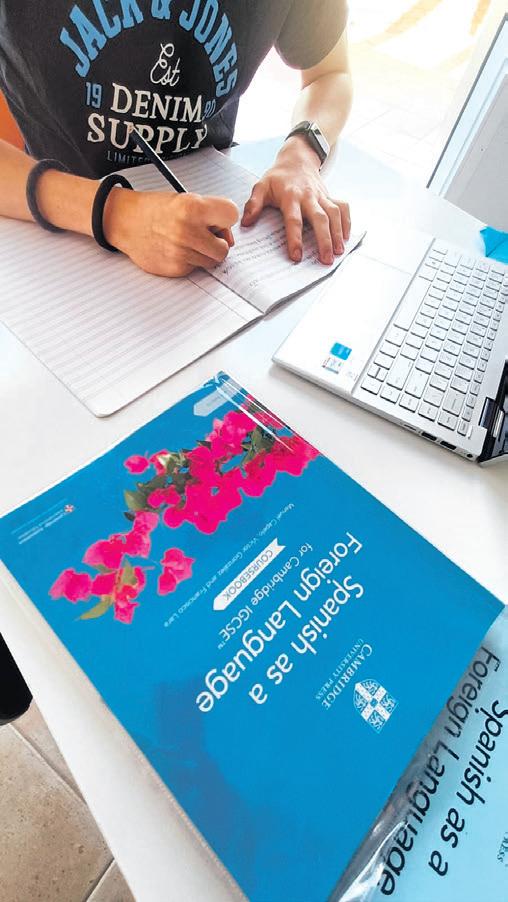
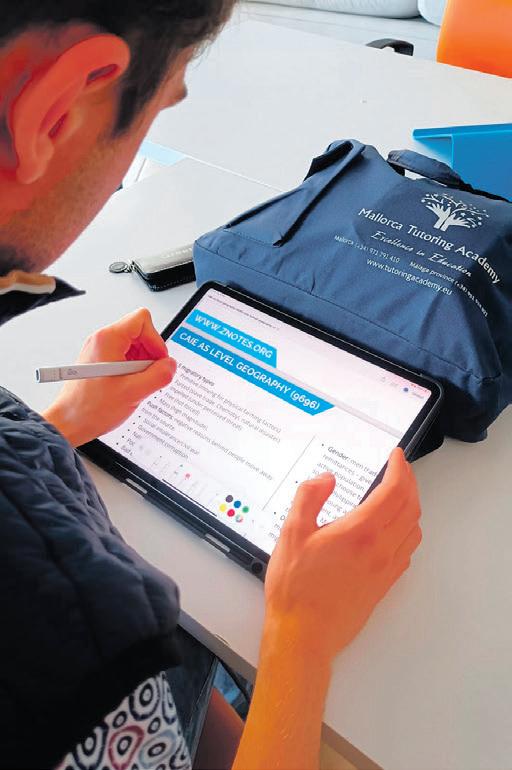
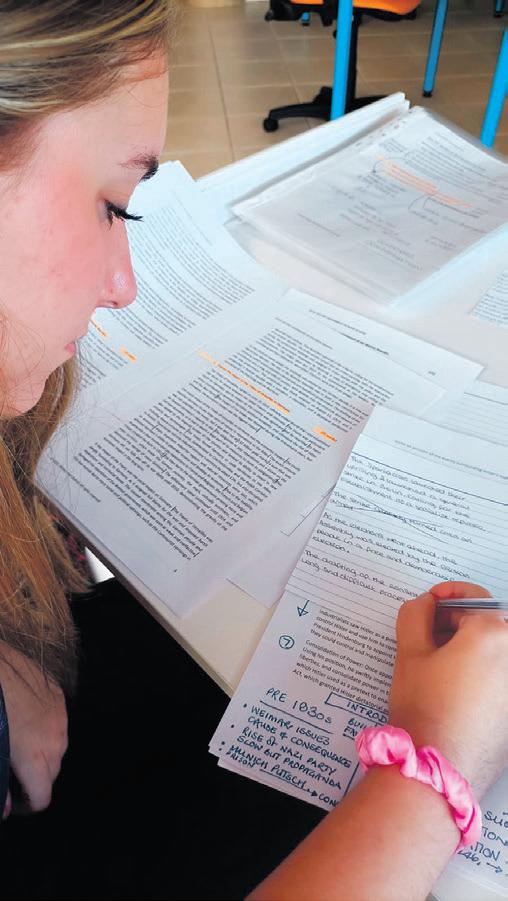
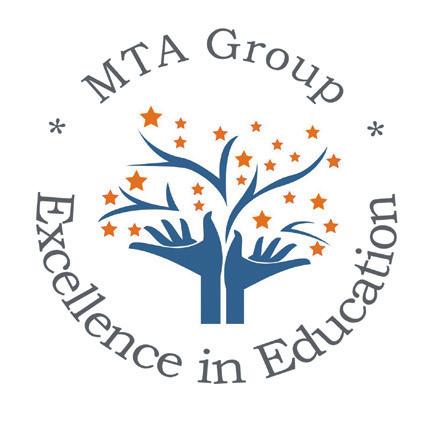
We provide the opportunity to study an entire A Level programme within the MTA facilities in partnership with Wolsey Hall, Oxford. Additionally, we also act as a re ferring partner for IB Diploma, working with Kings InterHigh.
3 points to consider when choosing your A Levels:
• Taking certain A Levels will open up more university course options.
• IB and A levels are a lot tougher than IGCSEs
• Choosing the right A levels at outset makes a significant difference to your university application process.
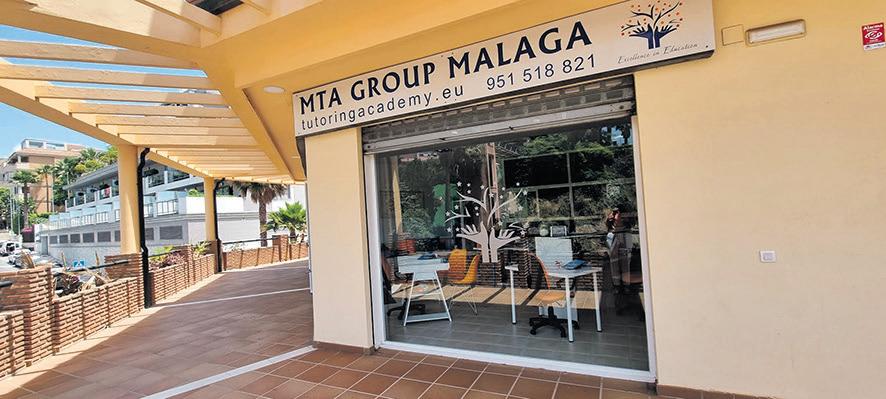

MONTESSORI education has become a popular alternative to traditional education basically because this methodology focuses on the development of the whole child, not only on the academic part, and also promotes in the students both their autonomy, a great capacity for creativity and concentration, a curious attitude and an enormous motivation to investigate and learn.
Knowledge of child development as well as the basic pillars of the methodology are essential in its practical application. Montessori is more than the use of phisical materials, it is a particular conception of childhood and a special attitude of the accompanying adult. Knowing the pupil very well, what their strengths and weaknesses are, allows the guides or companions to personalise the teaching as much as possible in order to
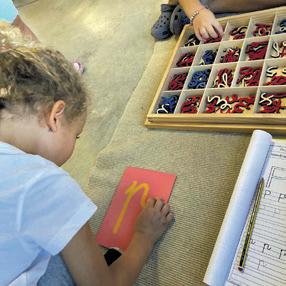
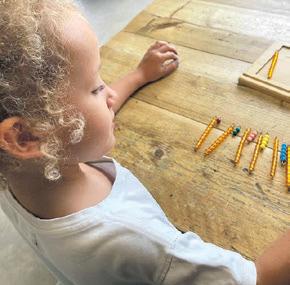
AFTER several months of holidays, September is the month when children return to school and have to reacclimatise themselves to being up and about at a specific time.
Many schools, mainly those run by the Junta de Andalucia, organise coaches to take the children to and from school although it can sometimes be surprising at the number of parents who decide to add to the already busy rush hour by driving their children to school.
Working parents can’t just leave their kids unaccompanied during the holiday season but happily many local councils and private companies organise summer camps where there is an element of learning although there is also often an emphasis on sport.
This summer has been particularly
bring out the best in each child and allow them to reach their full potential.
Offering safe environments, adapted to the Spanish regulations on the minimum conditions that educational centres must have, as well as having professionals with specialised training and in a continuous process of improvement is what allows us to guarantee the quality of the teaching. At IMS-S education is experienced, not just taught.
Here, every child is an explorer, every classroom a map of unlimited possibilities, and every day becomes an opportunity to grow with confidence and joy. At our school, we are committed to:
- Celebrating curiosity and creativity. Beyond academic achievement, we prepare our students for life’s challenges, fostering skills such as critical thinking, resilience and a love of learning.
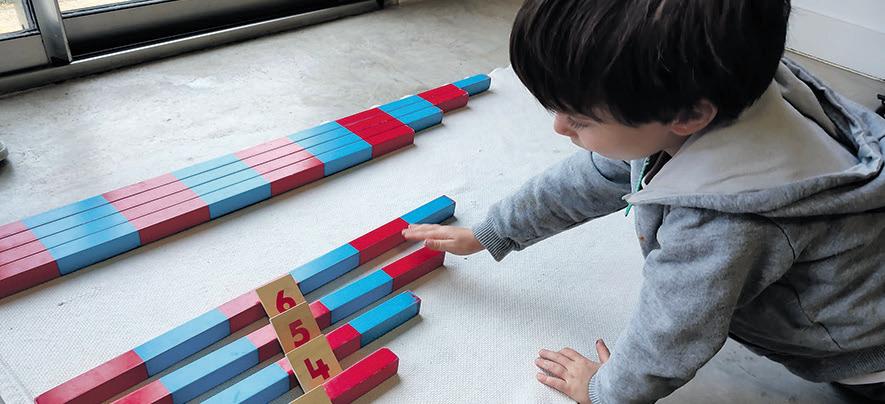

- Offering personalised learning that respects and encourages individuality. We tailor our teaching to individual needs, allowing each student to shine at their own pace.
- Creating an inclusive, bilingual community where families find support and companionship, and where all are welcomed, listened to and valued.
- Guiding our students to become environmentally responsible young people who are aware of their role in the world, preparing them to be active and compassionate global citizens.
If our essence resonates with you, request a visit and get to know our spaces, our curriculum and our teachers first hand.
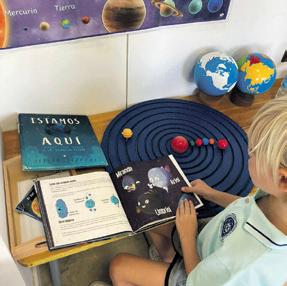
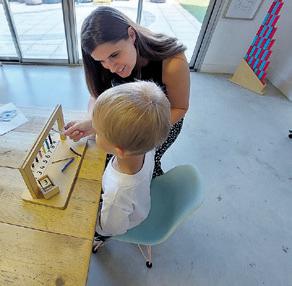
hot and there is currently no sign of the heat abating on the Costa del Sol so not only do the children have to cope with a return to disciplined learning but also have to survive in the continuing heat.
It’s something that those who were born and brought up in Spain are generally able to handle but for new arrivals from across Europe the hot weather can be yet another adjustment that they have to face.
The good thing is that generally young people are relatively adaptable and able to adjust to enforced change, but there will always be a minority who will feel challenged by the changes and this is where parents and the schools need to work together in order to ensure that any problems are spotted early and resolved as quickly as possible.
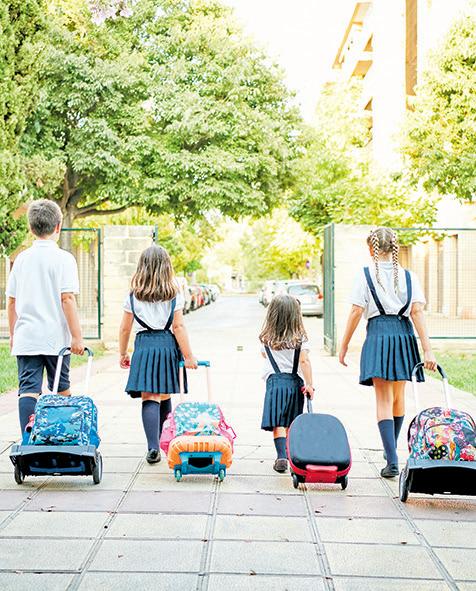
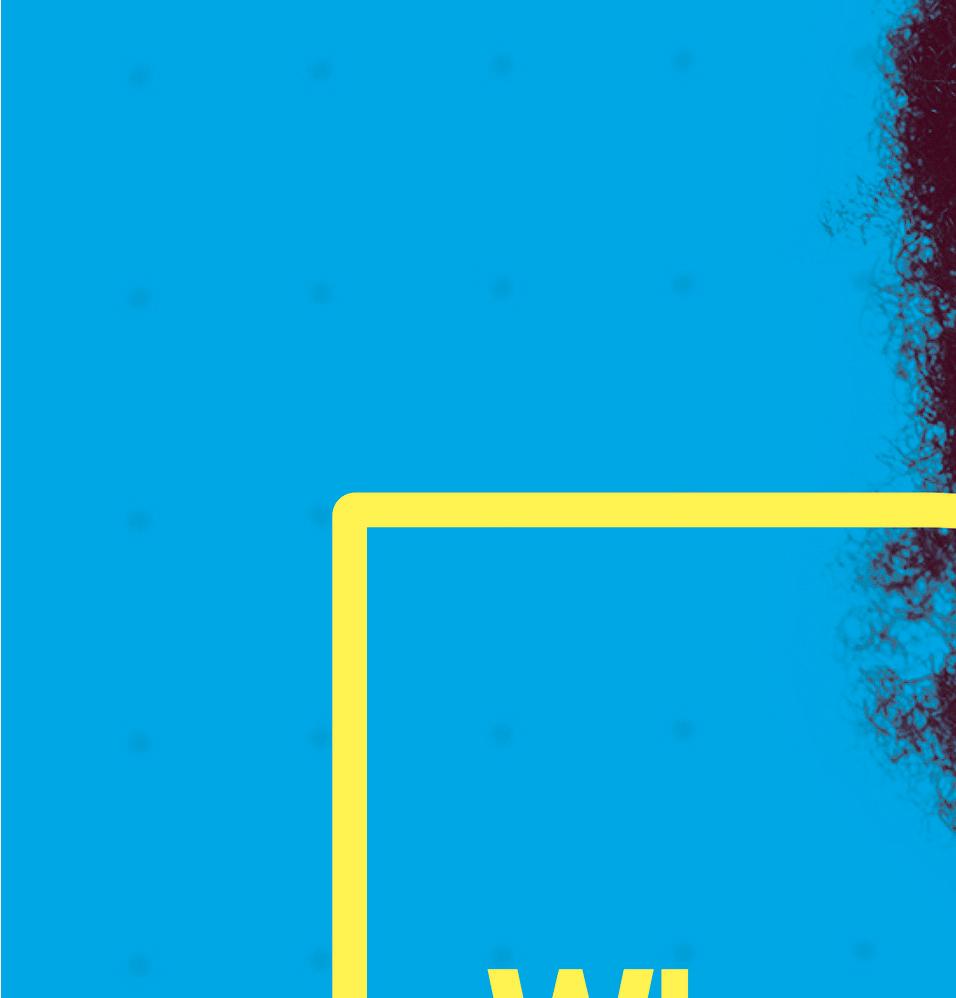



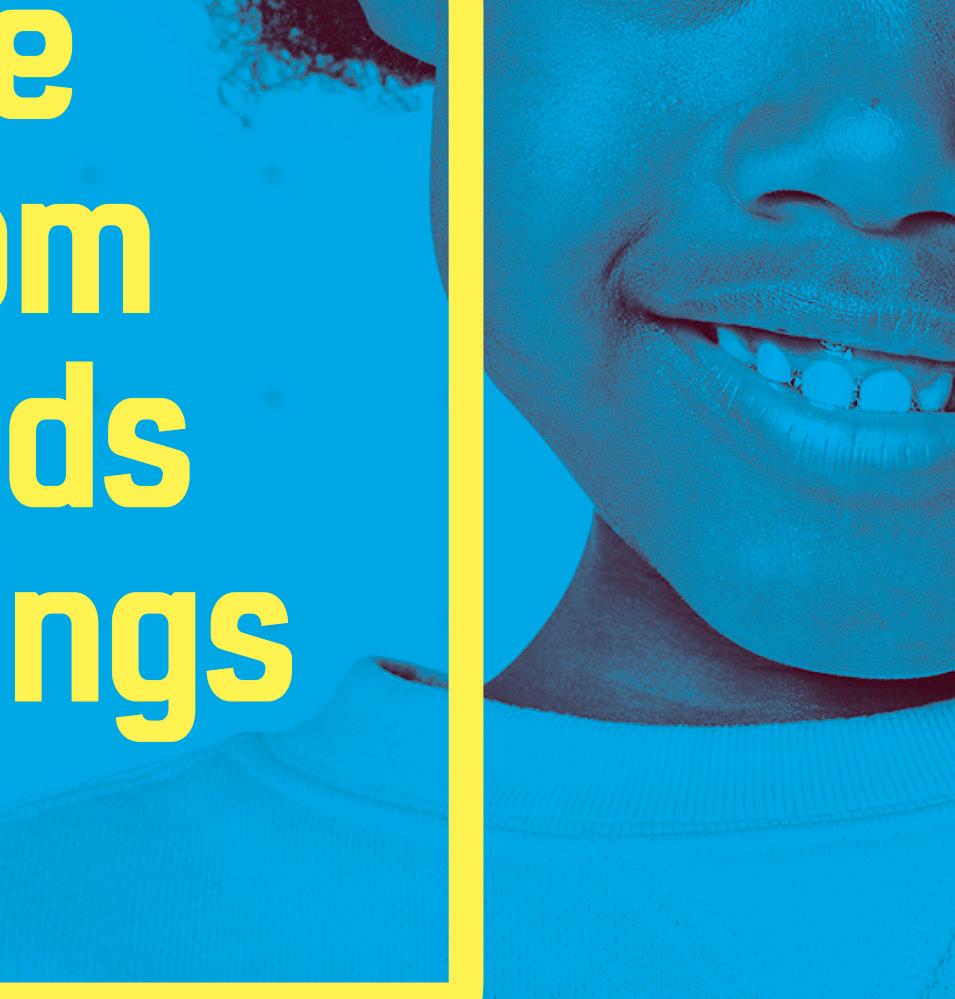
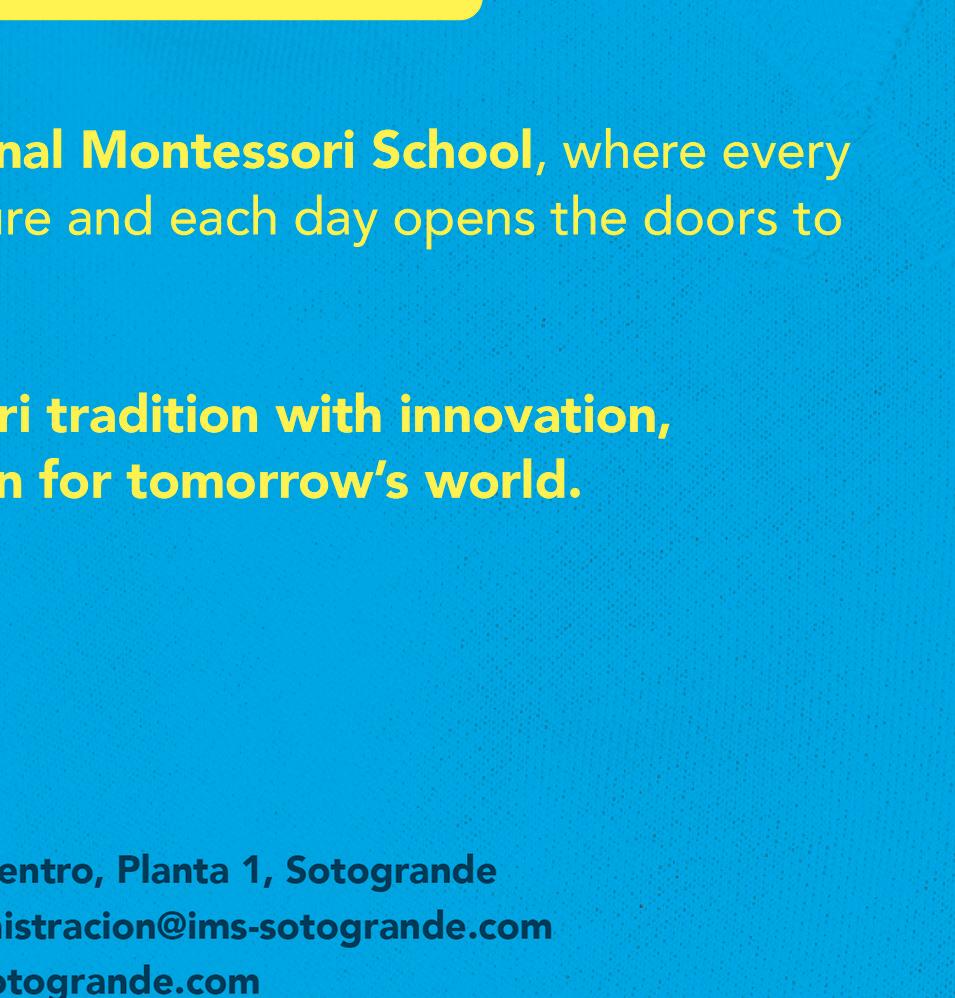


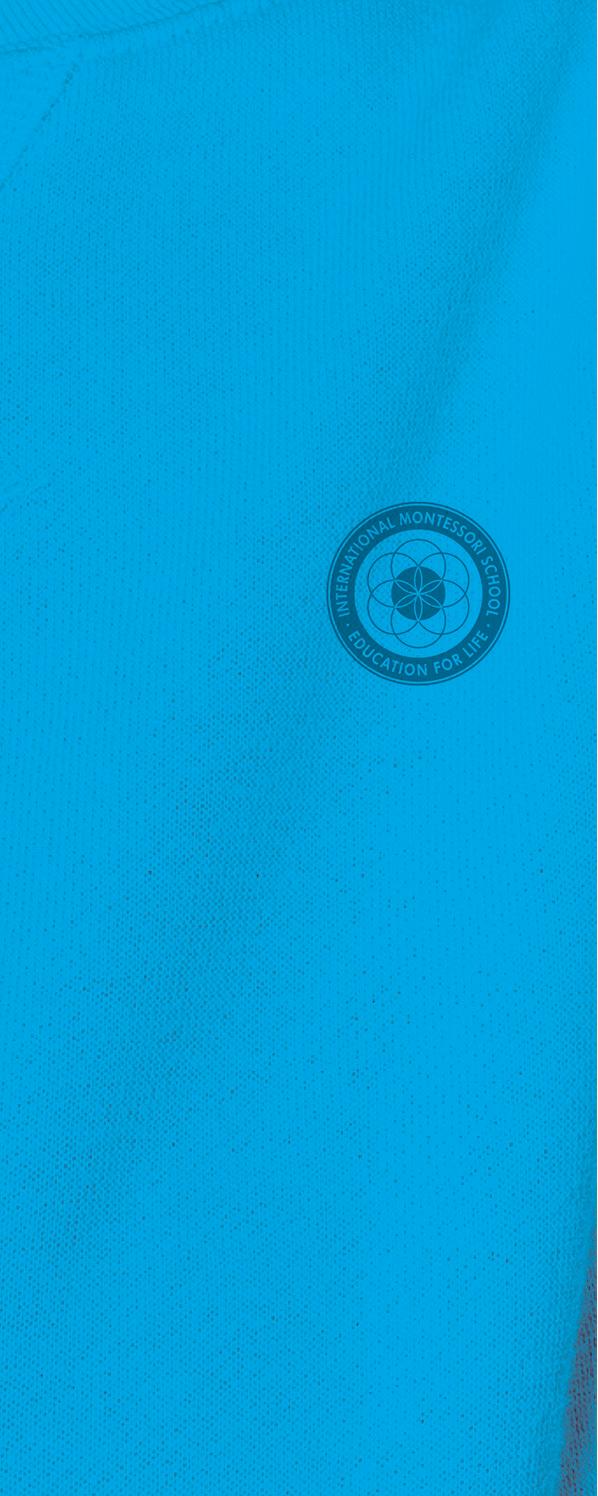
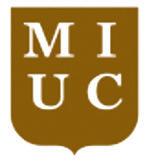
HAVE you ever imagined what it would be like to study in paradise? Picture yourself learning among ancient Roman ruins, connecting with peers under sunny skies, and advancing your career in a beautiful, tropical setting. Welcome to Marbella International University Centre (MIUC), where this dream becomes reality. As a distinguished campus of the University of West London in Spain, MIUC offers you the unique opportunity to earn a British-accredited degree in the vibrant heart of southern Spain.
But MIUC is more than just an exceptional education - it’s a way of life.
Academic Excellence:
At MIUC, we offer a broad range of
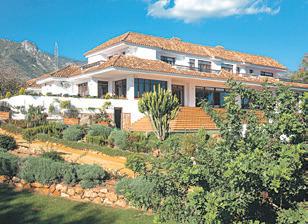
undergraduate and postgraduate programmes, all taught in English. Our key areas of focus include International Business Management, Marketing and Social Media, and Politics and International Relations. Starting in the 2024/2025 academic year, we’re introducing our new MBA programme (places are limited). Each course is designed to be practical, industry-focused, and rooted in real-world case studies, ensuring you are well-prepared for the global job market.
Exclusive Partnership:
Our exclusive partnership with the University of West London further strengthens our commitment to providing a world-class British education right here in Spain. The University of
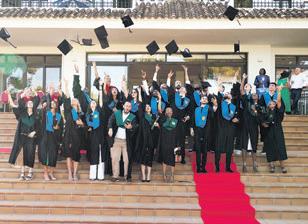
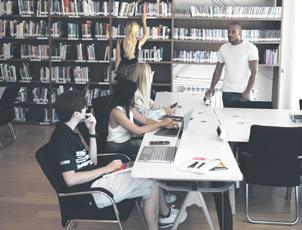
West London was granted The Best University for Student Experience and Teaching Quality in the UK in 2024.*
Personalised Learning:
One of the standout features of MIUC is our dedication to personalised education. With an impressive professor-to-student ratio of 1:10, you’ll benefit from close connections with our expert faculty. Our diverse student body, representing over 90 nationalities, further enriches your educational experience. We also offer a wealth of internship opportunities, allowing you to apply your knowledge in real-world settings.
A Stunning Location:
Situated on the picturesque Costa del Sol, Marbella is more than just
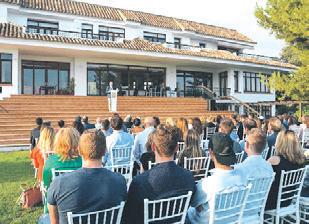

an academic hub. It’s an ideal destination for international students, conveniently close to Malaga airport. With a favourable climate, international investments, a network of global schools, and a lower cost of living than major cities, Marbella offers the perfect blend of academic excellence and quality of life.
MIUC - Because You Deserve the Best Education.
*in The Times and Sunday Times Good University Guide, 2024.
Avenida Don Jaime de Mora y Aragón, s/n, Finca El Pinillo , 29601 - Marbella 952 860 000
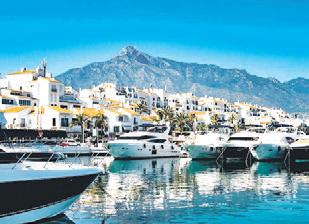
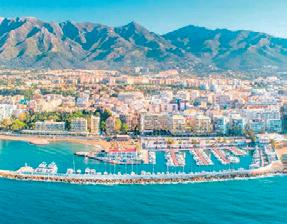
AFTER moving to Spain at the age of three, I have spent my entire academic career attending private schools along the Costa del Sol. My school life began at a small bilingual school located in San Pedro, where I spent my first few years learning to read and write, similar to any other standard school, although in both English and Spanish. However, a unique aspect that I perhaps did not realise at the time was the genuine pastoral care this school provided, truly devoting themselves to the students.
Taking pride in their bilingual education, we would partake in a range of core lessons taught in both English and Spanish. Whilst the education itself appeared to be behind schools in the UK, many forget to take into account that we were given the challenge to learn two languages at once. This leaves the impression to some that this was a burden on my education, when in reality it gave me the ability to speak two languages, a rare gift that I will forever be grateful for.
After spending multiple years at a bilingual school, I moved to a much larger international school, which follows the British national education system whilst also priding itself in sports. Typically producing a strong set of IGCSE and A level results, competing against other international schools along the coast, the quality of education can be considered just as good as schools in the UK. This has become evident over the years, including this year, as international schools along the coast top the UK average of 28 per cent A*/A at A level. The English International College (EIC) for example produced a 56 per cent A*/A result and 31 per cent at Aloha College, showing their high calibre education.
However, whilst international schools do share similarities to schools in the UK, one main difference I have found are the masses of diversity and culture, due to the wide abundance of students coming from across the world. With many schools having students and teachers from over 40

countries, it allows children to understand and appreciate others’ values. Whilst mainly positive, this also means that peers may only spend a couple of years at one school before moving again with their families. This appears to be a common occurrence at international schools, meaning that student friend groups often fluctuate, creating some instability within classrooms.
Having lived on the coast for 14 years, I feel confident in saying that international schools like mine are a solid solution for those who want their children to go through the British education system. In my own experience, international schools provide equal opportunities to those in the UK to attend highly ranked universities thanks to their quality education.
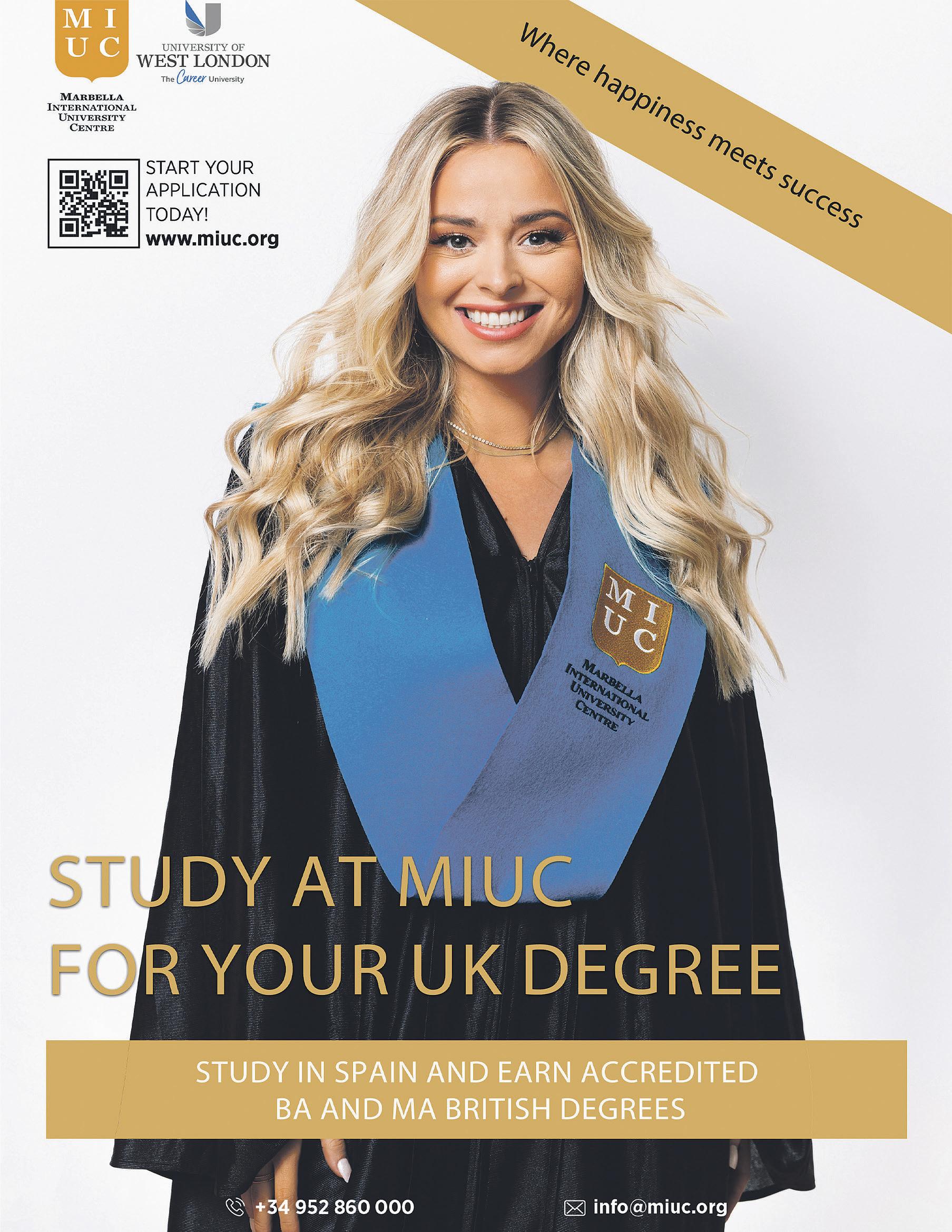
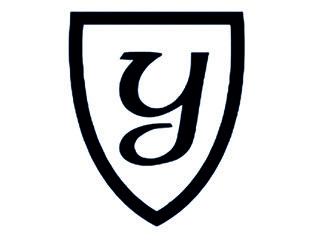
A place to learn, dream, achieve, share & be!

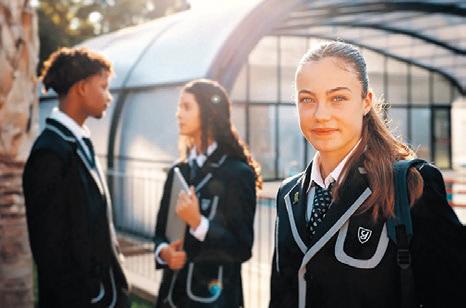

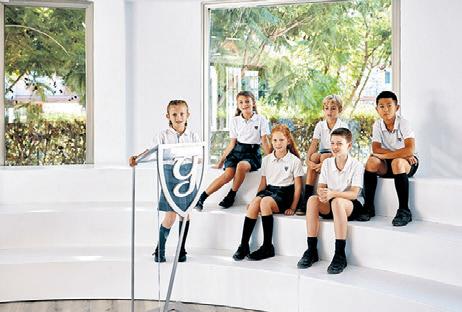
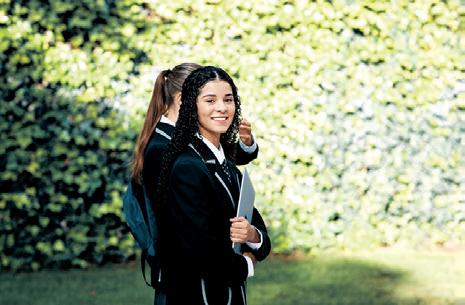
WE are a private, multilingual and international school, with mixed education, where we combine tradition and modern approach to learning.
At Yago School, we are transforming the educational-learning system in the south of Spain so that our students from three to 18 years can successfully confront many of the educational challenges of the 21st century, by offering the International Baccalaureate. The Yago team strives to inspire, nurture and empower every student to achieve their personal best and become enquiring, knowledgeable, lifelong learners who create a better world through intercultural understanding and respect.
Our purpose is for students to develop their abilities and potential to the maximum, to build knowledge through projects, broaden their interests and
Mtheir own experience using integrative, innovative and cooperative methodologies in traditional and technological environments so that they can succeed at universities and in their professional careers all over the world.
Yago School’s principles have been built on five educational pillars: traditional values, bilingualism, sports, music and new technologies. Five bases that, combined with demanding academic training, provide our students with an extremely solid foundation promoting success in both their personal and professional lives.
The use of technology is embedded in the curriculum for all students from the age of four. The outstanding sporting facilities, including sports

PARTS of Spain have already taken the first steps to ban or at least limit the use of mobile phones in school. A good thing, or a bad thing? Some have pointed out the benefits of using this type of technology: built in calculator, note book, reference devised for internet use, and of course there is simply the opportunity to access help in the case of an emergency, and for parents to contact their children. Neuropychologists who have looked into this suggest that children should have limited access to mobile devices while they are in their early years and while cognitive functioning is still developing. They say that mobile devices are designed to captivate attention rather than facilitate learning. Harvard studies have also suggested that the best way to connect what we hear to what we remember is good old pen and paper, by all means entered into a word processor later, but not done directly. We live in a world where being digitally competent

pitches and a sports hall and we provide many opportunities for students to compete in team and individual events.
Admission: Admissions are open throughout the academic year, subject to availability. Every effort is made to reserve a space for international applicants. We currently arrange boarding in our residence for our international students.
More information at www.yagoschoolmalaga. com.
C. Escritora Fuster Gallardo, 10 29018 Malaga +34 951 012 990 secretary.malaga@yagoschool.com
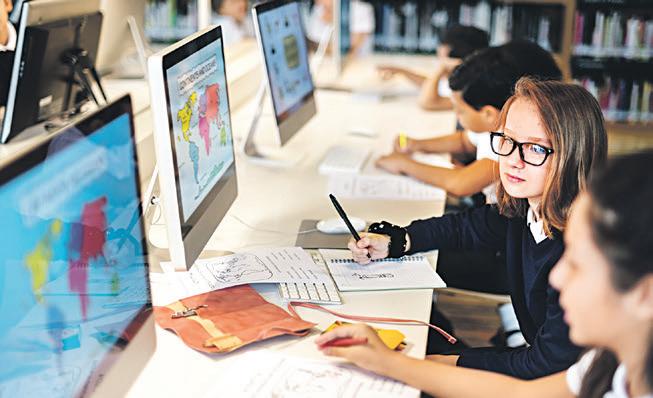
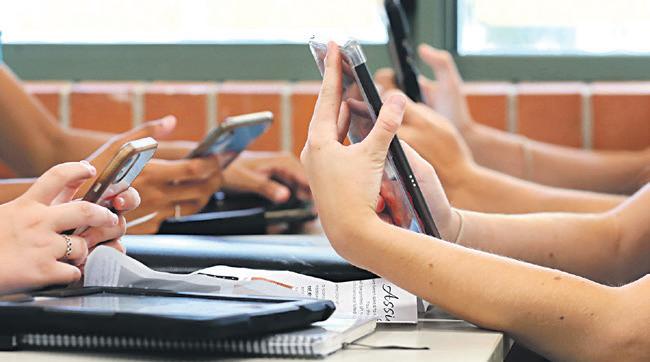
is no longer a luxury, but how do we get the balance between the best way to learn and improving young people’s skills in the digital age?
Should the use of computers, including mobile devices, be limited to subjects that focus on computing skills, whether that be research, or use of applications? Some of us would be lost without our Excel spreadsheets in our daily life, but so were the 1960’s children without their slide rule.
Life moves on whether we like it or not, but going all digital may have unexpected negative consequences if not carefully thought through. There is no doubt about the advantages of internet to students, but the temptation for being distracted by incoming messages, fun applications can cause a decline in test scores according to another study from Harvard University.
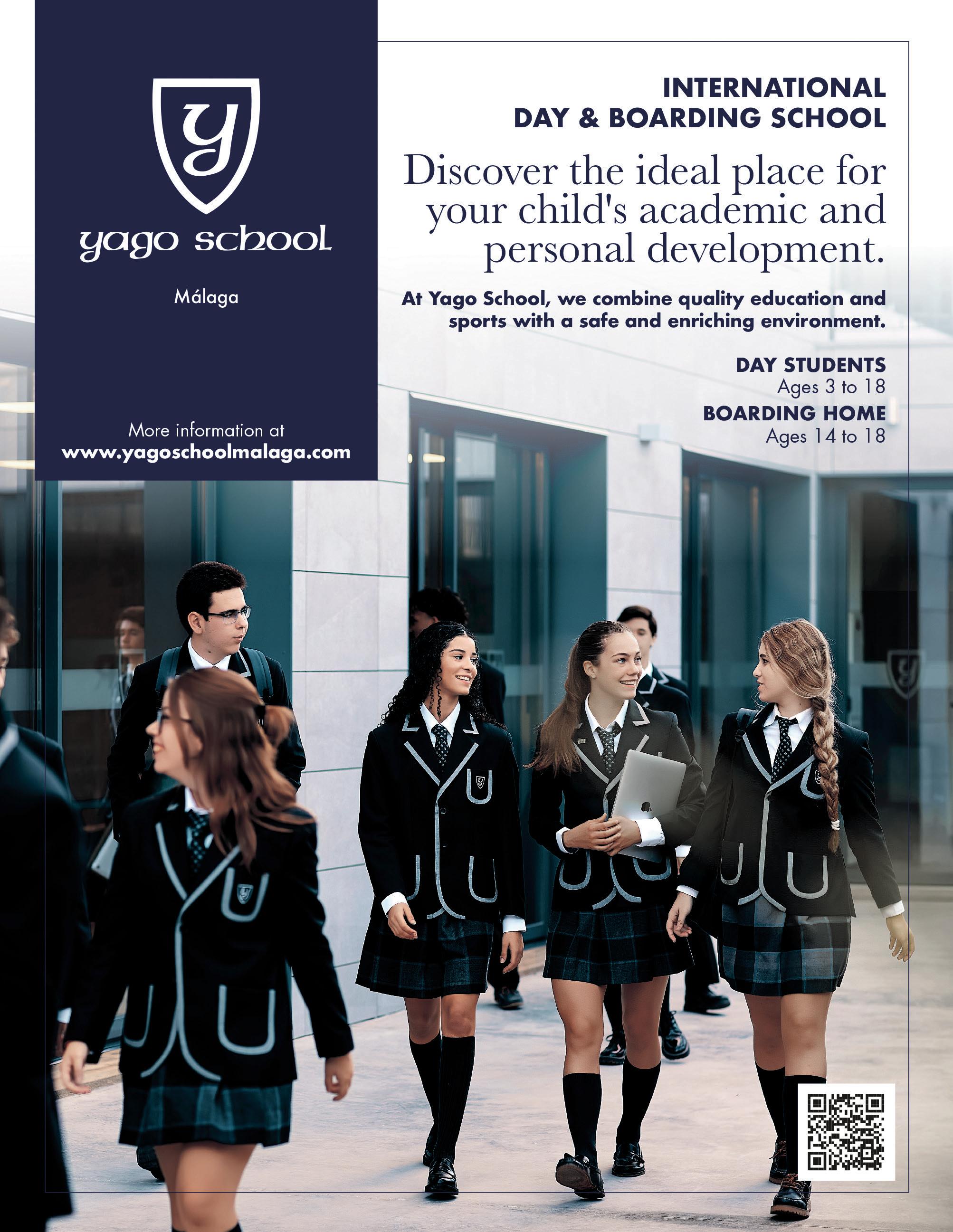
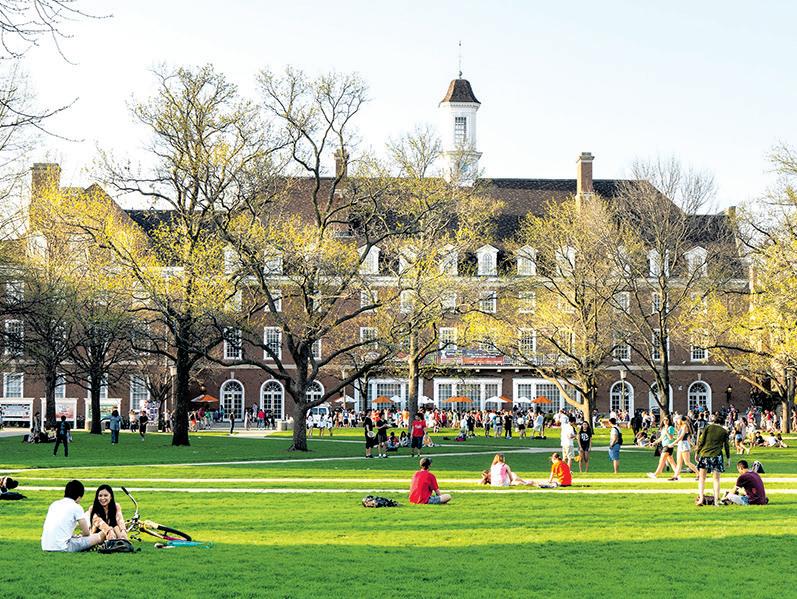
THE Erasmus programme, established by the European Union in 1987, was designed to encourage cooperation between universities and higher education institutions across Europe by creating a structured system for student exchanges.
Over time, the programme has expanded and is now known as ‘Erasmus+’.
This broader framework integrates various EU schemes for transnational cooperation and mobility in education, training, youth, and sport, and increa-
singly extends beyond Europe.
Since its inception, over 15 million people have participated in Erasmus+, benefiting from opportunities offered to students, staff, and learners of all ages.
The name ‘Erasmus’ pays tribute to Erasmus of Rotterdam, a prominent Renaissance scholar who travelled extensively across Europe to teach and study.
It also serves as an acronym for The European Community Action Scheme for Mobility of University Students.
Erasmus is available to both students and academic teachers.
Students who qualify can study abroad, gaining not only academic knowledge but also language skills and a broader perspective.
Academic teachers can also participate, using Erasmus to teach, conduct research, or observe academic practices at institutions in other countries.
To participate in Erasmus, universities must apply for the Erasmus University Charter from the executive agency in Brussels.
The destination options for students depend on the university’s partnerships and collaborations.
For instance, the University of Warsaw has 456 partner universities, while the University of Copenhagen has about 270, with partners in countries such as Belgium, Sweden, Spain, Turkey, and Germany.
The length of stay in an Erasmus programme varies from three to 12 months, depending on whether one is involved in a traineeship or a scholarship.
